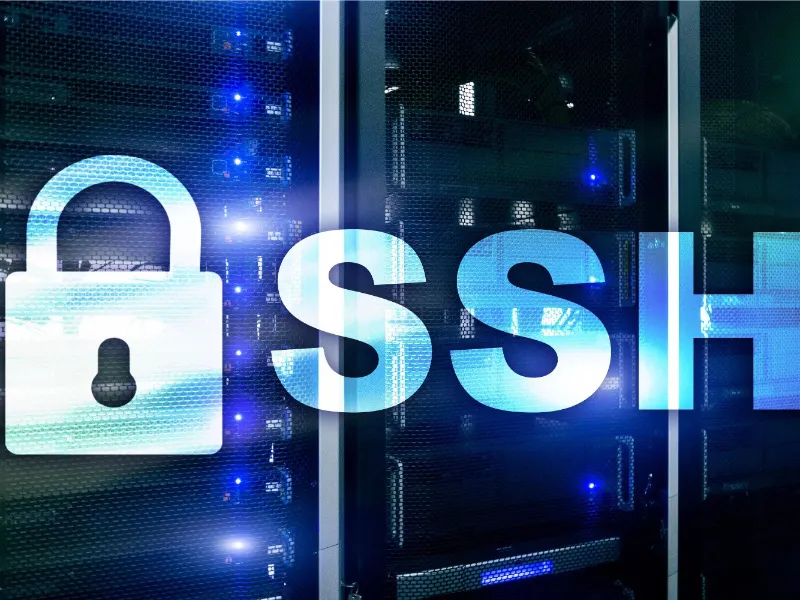- SSH is a network protocol designed to enable secure remote login and command execution over an unsecured network.
- SSH’s importance lies in its ability to provide a secure and encrypted means of communication over potentially unsafe networks.
In the world of networking and cybersecurity, Secure Shell (SSH) is an essential protocol that provides a secure method for accessing and managing networked systems. SSH plays a critical role in ensuring safe and encrypted communication between clients and servers, protecting data from potential threats and unauthorised access.
What is SSH?
SSH is a network protocol designed to enable secure remote login and command execution over an unsecured network. It replaces older protocols such as Telnet and rlogin, which transmitted data in plain text, leaving users vulnerable to interception and attacks. SSH uses encryption to safeguard the communication channel, making it a cornerstone of secure network administration.
How SSH operates
When a user initiates an SSH session, the client and server perform a handshake process to establish a secure connection. This involves exchanging cryptographic keys and agreeing on encryption algorithms to protect the data exchanged during the session.
SSH supports multiple authentication methods to verify the identity of users. The most common methods include password-based authentication and public key authentication. In public key authentication, users generate a pair of cryptographic keys (public and private). The public key is placed on the server, while the private key remains secure on the client. The server uses the public key to verify the client’s identity without transmitting passwords.
Once the connection is established and authentication is successful, SSH encrypts the data transmitted between the client and server. This encryption ensures that any commands executed or data transferred during the session are secure and unreadable to eavesdroppers.
SSH allows users to perform various tasks on the remote server, including file transfers, command execution, and system management. Commands are sent through the encrypted channel, ensuring that administrative tasks are conducted securely.
Also read: How to design a secure network infrastructure?
Also read: Understanding anti DDoS: How does it work?
Real-world applications of SSH
SSH is widely used by system administrators to manage servers and network devices remotely. For example, a network administrator can use SSH to log into a server from a different location, execute commands, and configure system settings without needing physical access to the machine.
SSH is the foundation for secure file transfer protocols such as SCP (Secure Copy Protocol) and SFTP (Secure File Transfer Protocol). These protocols leverage SSH to encrypt file transfers, ensuring that sensitive data is protected during transit. For instance, transferring confidential business documents between a local machine and a remote server can be done securely using SFTP.
SSH can create secure tunnels to protect data transmitted over less secure networks. For example, SSH tunneling can be used to secure connections to web applications or databases, effectively encrypting the data being transmitted and protecting it from potential interceptors.
Developers often use SSH to access version control systems like Git. By connecting to repositories via SSH, developers ensure that their code and version history are transmitted securely, protecting the integrity of their projects.
Why SSH matters
SSH’s importance lies in its ability to provide a secure and encrypted means of communication over potentially unsafe networks. By ensuring that remote access and data transfers are protected from unauthorised access and interception, SSH helps safeguard critical information and maintain the integrity of network operations.
Understanding SSH is vital for network administrators, IT professionals, and anyone involved in secure communication and data management. The protocol’s robust security features make it a fundamental tool in protecting sensitive information and maintaining the security of networked systems.
SSH is a crucial protocol for securing remote access and communication in a networked environment. Its ability to encrypt data, support secure authentication, and facilitate various network tasks underscores its significance in modern digital security. Whether managing servers or transferring files, SSH ensures that your network interactions are protected against potential threats.

